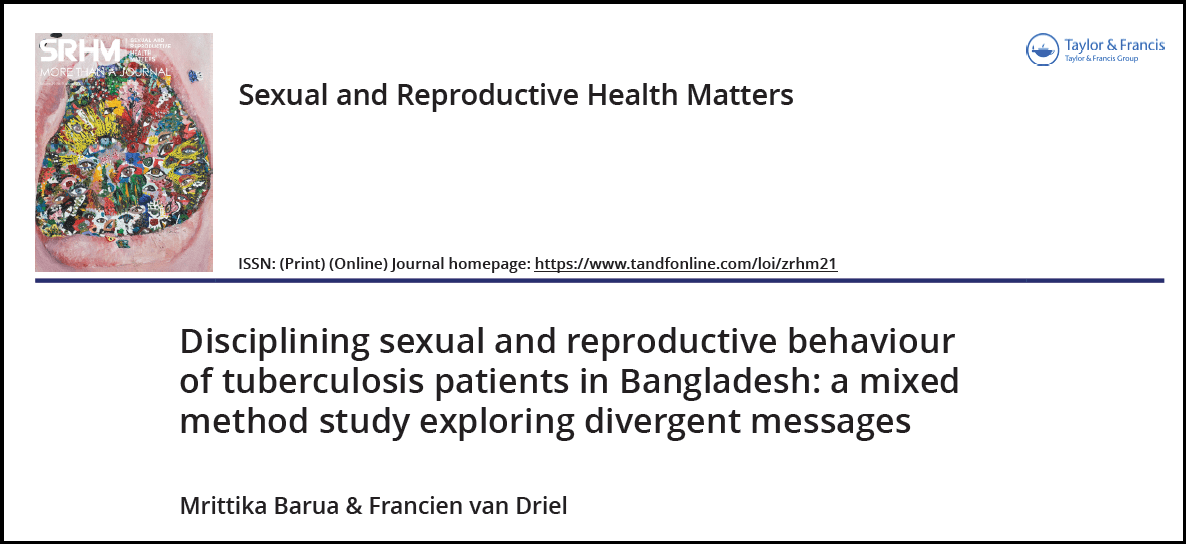Disciplining sexual and reproductive behaviour of tuberculosis patients in Bangladesh: a mixed method study exploring divergent messages
This research paper has been co-authored by Mrittika Barua, Assistant Professor, BRAC James P. Grant School of Public Health, BRAC University, Dhaka, Bangladesh and Francien van Driel, Assistant Professor, Anthropology and Development Studies, Radboud University, Nijmegen, Netherlands.
Background
Tuberculosis is an infectious disease that is widely prevalent in Bangladesh,1 with pulmonary tuberculosis being more prevalent than extra-pulmonary tuberculosis.2 Despite this, there is scant literature on the influence of messages from policy makers and health workers on the sexual and reproductive health (SRH) of tuberculosis patients. Such scarcity is crucial to address when, despite incorporating SRH rights into policies,3 there is meagre implementation and social recognition of these rights in Bangladesh. To ensure the physical, mental, and emotional well-being of patients, we need to understand how information on SRH is integrated and reproduced in the medical discourse on tuberculosis and to what extent the treatment regimen affects SRH. This paper analyses policy documents, an NGO’s guidelines, and the messages delivered by health workers to reveal whether national policies and the instructions delivered to patients address SRH matters, such as intercourse, breastfeeding, pregnancy, and contraception, in relation to tuberculosis treatment.
Abstract
There is scant information on the instructions provided by health workers to patients diagnosed with tuberculosis and the implications these instructions have for sexual and reproductive health and rights and tuberculosis control in Bangladesh. This paper aims to draw attention to tuberculosis control guidelines and information dissemination practices that may need to be adapted to the living situations of those with tuberculosis. Data collection took place in the Monohardi and Narsingdi Sadar sub-districts in Narsingdi and the Mirpur slum in Dhaka, Bangladesh, between December 2015 and March 2016. We present findings from an analysis of four significant documents, 45 in-depth interviews (of current and former tuberculosis patients, their family members, and health workers), and two focus group discussions with health workers. The findings show that the official guidelines and policies hardly address sexual health or rights. During the treatment period, patients received mixed and inconsistent instructions from health workers on sexual intercourse, contraception, pregnancy, and living arrangements. The messages were interpreted differently based on who delivered and received them, and different instructions were provided to women and men. The instructions were not specific to the living situations of patients and therefore led to implementation challenges. Future interventions should ensure correct and consistent messaging, and policies should be adapted to the sexual needs of those infected with the disease.
Source: Taylor & Francis online
